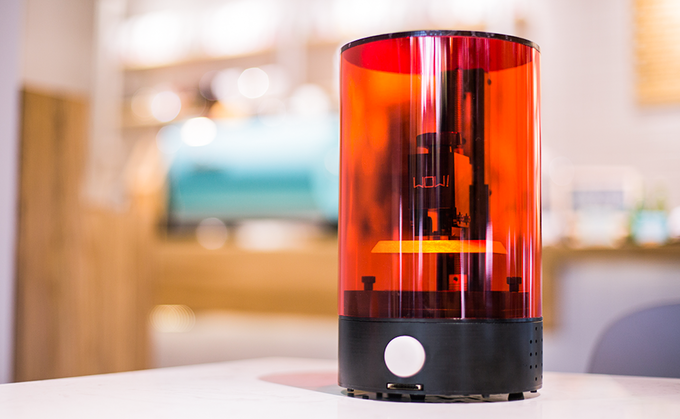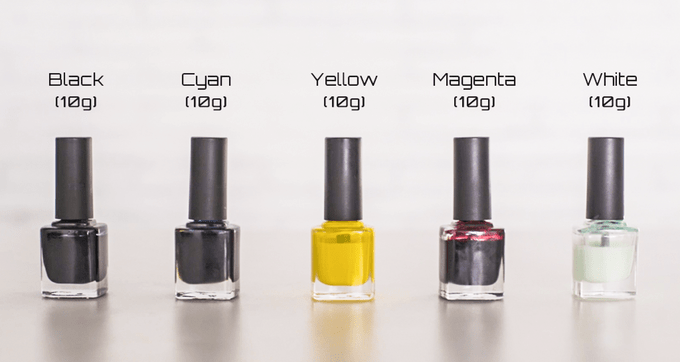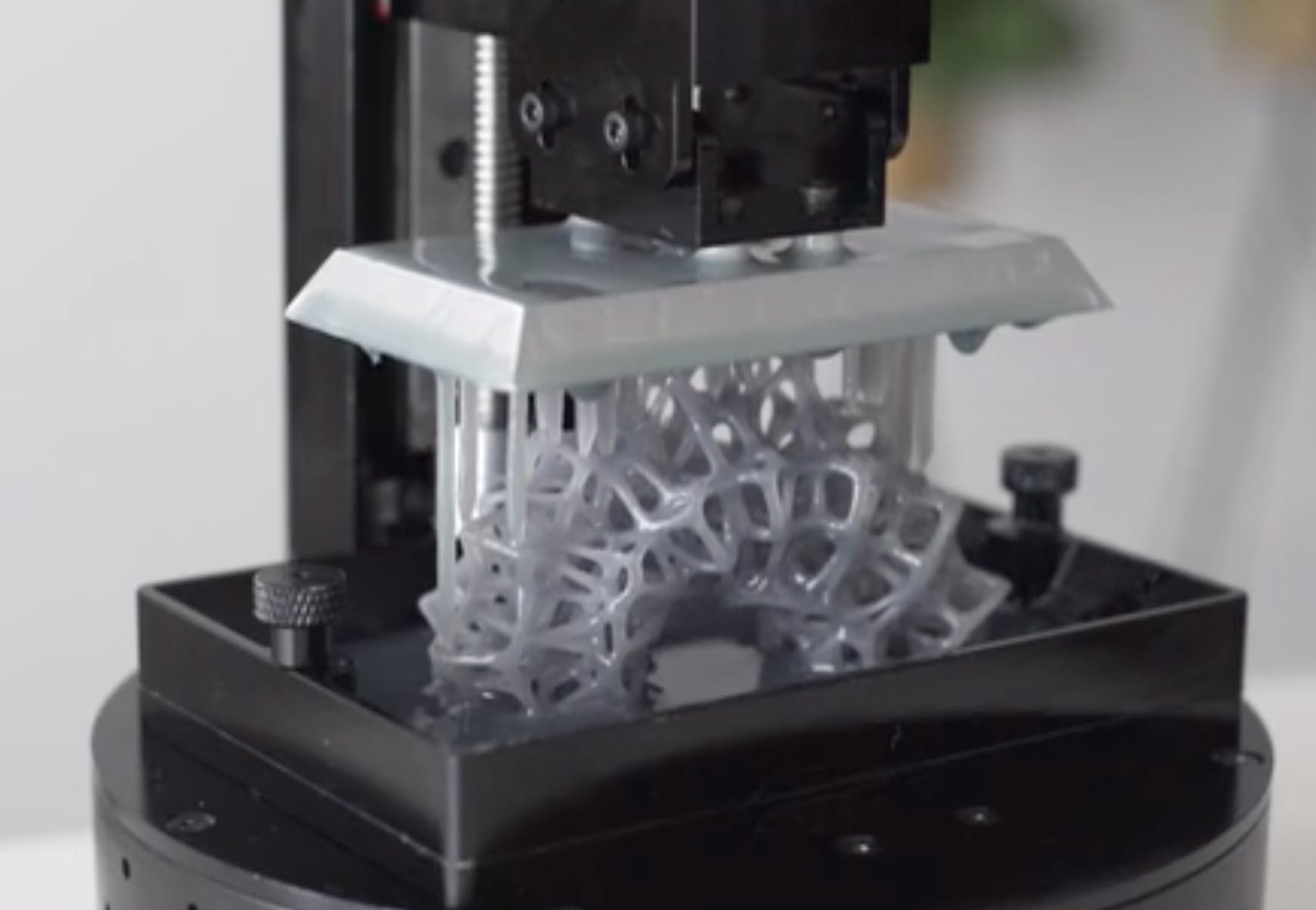
The Sparkmaker 3D printer is currently listed on Kickstarter and appears quite popular. Let’s find out why.
This inexpensive desktop 3D printer uses the resin process, in which photopolymer resin is solidified by exposure to light. In this case, the light is provided by an LCD panel at the bottom of the unit. An entire layer is completed simultaneously, as all pixels on the LCD panel correspond to solidified voxels. This should make this printer a bit faster than those that employ lasers that must laboriously trace all parts of the solid layers.
The build volume is rather small on this machine, as is the case for many resin 3D printers that are used to 3D print high resolution small objects, such as jewelry. It’s only 102 x 56 x 125mm, but should be able to fit many useful high resolution projects.
As this is a low-cost device, you shouldn’t expect much. However, there is one interesting feature, which is one-touch printing. The Sparkmaker includes an offline capability in which an SD card can hold the sliced 3D model for printing without need for continuous connection with a computer. While this feature is commonly available on more expensive desktop 3D printers, it’s not always found on lesser priced units like this one. Just insert the SD card and press the (only) button and print starts.
Another interesting aspect is the attention the company paid to materials. As a resin machine, it is capable of handling any suitable 3D printable photopolymer resin, of which many are now available. However, Wow! has also made available a short line of resins specifically for the Sparkmaker that offer some interesting properties:
- A “tough” resin provides a strong, basic material to build functional parts
- A “nylon like” resin produces parts with strength
- A special casting resin can be used to 3D print objects that can be burned out without ash for use in the lost wax metal casting process
- An elastic resin makes stretchy and bendy objects
- Finally, a “water washable” resin makes objects that can be smoothed by application of water.
This last resin is interesting. Essentially it is a water-soluble plastic, typically used for dissolvable support structures in other 3D printers. However, here the idea is that you can smooth your prints by dipping or painting them with a bit of water. While convenient, it is also a bit risky as household prints can easily encounter water in the course of their life.

Wow! has also made available a resin coloration kit, composed of: black, cyan, yellow, magenta and white. With these colors, one can theoretically create any conceivable color and apply it to the resin. However, it’s not clear how well this works, as the resins themselves do have some color and the end effect is going to be a mix.

The device is produced by Wow! a Shenzen-based company that to offer only this device. However, the company, which has been around since 2015, apparently has produced several prototypes of increasing capability since then. In 2016 the company actually sold some early designs to “friends” for evaluation. In early 2017 they began a beta-testing program that was used to debug hardware and software issues.
The reason I’m going through all this is that it does demonstrate that Wow! is taking the development and manufacturing process quite seriously, unlike many other crowdfunded ventures, some of which offer machines that have surely never been actually tested by humans. This does reduce your risk in purchasing this item.
Another problem frequently encountered by such 3D printer startups is manufacturing, where the investors typically make a single machine in their workshop and assume it can be mass manufactured, only to discover this isn’t the case when they receive 10,000 orders. Many startups have failed in this way.
But I suspect this won’t be the case with Wow!, as they are Shenzen based and more than likely have good connections with a number of reliable manufacturers.
It seems that this low cost 3D printer startup might have less risk than some others. But the normal cautions do stand here: if you are buying a unit, make sure you are ok losing that money if the project goes south.
And how much money is required to purchase one of these machines? Not a lot. Their normal retail price is to be only USD$249, which is very inexpensive for a resin 3D printer. However, during their launch they’ve had pricing as low as USD$99. Those low prices are gone now, but there are still discounts available. Wow!’s price for resin ranges from USD$39-59 per 0.5kg, or about USD$80-120 per kg.
That’s not a lot of money to spend on a 3D printer. But remember that you will also have to pay for 3D printer resin, which is typically priced higher than the PLA and ABS filaments you may have seen. You’ll also have to pay for replacement print tanks, as they tend to wear out after a number of prints. I don’t know the price of the replacement tanks, but it is probably in the USD$30-50 range.
So far it seems the combination of price, features and likely the confidence in the developers has resonated with buyers, as they’ve now sold well over 1,000 units and have a long way to go. It will be a big challenge for them to produce large quantities of units, but they are in a good place to do so.
If you’re interested in trying out a resin-based desktop 3D printer at low cost, this might be a project for you.
Via Kickstarter and Sparkmaker

